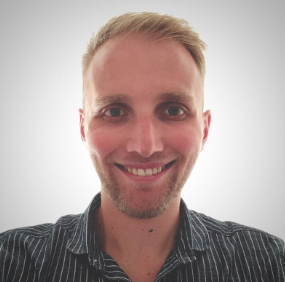
Dr George Baldwin
Clinical Psychologist
George Baldwin is a Clinical Psychologist who completed his doctorate at the University of East Anglia (UEA) Medical School and has received training through the National Institute for Health and Care Excellence (NICE).
He has extensive experience working across primary and secondary care community mental health services with both children and adults, as well as in psychiatric inpatient settings, including forensics, adult acute, older adult acute, and eating disorder units. His work has also spanned physical health clinics—covering areas such as pediatrics, diabetes, and chronic pain—as well as specialist services for learning disabilities and fostering.
George has supported clients across the lifespan, treating a wide range of psychological difficulties. He enjoys working with a diverse range of clients individually, in couples or families, and in small group settings.
His therapeutic approach is flexible and inclusive, particularly attentive to neurodiversity, including ASD, ADHD, ADD, and Dyslexia. He draws from a range of therapeutic models, including Cognitive Behavioural Therapy (CBT), Systemic Therapy, Acceptance and Commitment Therapy (ACT), Solution-Focused Therapy (SFT), Compassion-Focused Therapy (CFT), and Dialectical Behavioural Therapy (DBT) skills. His key clinical interests include anxiety, panic, depression, bipolar disorder, psychotic depression, schizophrenia, delusional disorder, hoarding, OCD, disordered eating, emotional dysregulation, personality disorders, specific phobias, and trauma—including various forms of abuse, neglect, and bereavement.